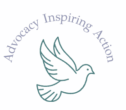Sex Offender Policy Board
In 2008, the legislature passed SSB 6596 to create the Sex Offender Policy Board (SOPB). The Legislature’s intent was to promote a coordinated and integrated response to sex offender management and create an entity to respond to issues that arise, such as integrating state and federal laws in a way that enhances the state’s interest in protecting the community with an emphasis on public safety.
Directs the Sentencing Guidelines Commission (SGC) to establish and maintain Standard Operating Procedures. The Board is assigned a wide variety of duties that range from conducting individual case reviews to undertaking projects that inform policy related to sex offenders.
Contact Information
Sex Offender Policy Board
P.O. Box 43124
Olympia, WA 98504-3124
Phone: 360-995-3847
Email: sopb@ofm.wa.gov
Current Members 2024-2026
- Brad Meryhew, chair & Sonja Hardenbrook
Washington Association of Criminal Defense Lawyers - Jamie Weimer, vice chair & Terrina Peterson
Washington Association of Sheriffs and Police Chiefs - Trisha Smith
Office of Crime Victims Advocacy - Donald Redfield
Association of Washington Cities - Blanche Barajas
Washington Coalition of Sexual Assault Programs - Keith Devos
DSHS Special Commitment Center - Mac Pevey
Department of Corrections
Board's Recommendations
In the Fall of 2024 the Board submitted to the follow report to the House Community on Safety, Justice and Reentry Committee.
Click the document image to read the complete recommendation.
Here is a bulleted summary of the key points from the documents:
• The Sex Offender Policy Board (SOPB) unanimously recommends that
individuals granted Special Sex Offender Sentencing Alternative (SSOSA)
sentences should be supervised for the length of their suspended sentence
or 36 months (whichever is longer), rather than for life.
• The Board recommends that sentencing judges hold supervision
termination hearings at the end of the presumed community custody period
to determine if SSOSA recipients should be released from supervision.
• For non-SSOSA cases, while there’s general consensus that a pathway off
lifetime supervision should exist, the Board couldn’t reach agreement on
specifics such as:
– Appropriate timeframes for eligibility based on risk level
– Whether a step-down approach should be required versus direct
discharge
– Who should initiate and conduct reviews for discharge
– What disqualifying events should prevent eligibility
• Research shows risk of reoffending declines significantly over time, with
studies indicating most recidivism occurs within the first few years after
release
• After 10-15 years offense-free in the community, most individuals present
minimal risk
• The current lifetime supervision system has substantial costs (estimated at
over $67,000 per individual)
• Challenges of the current system include:
– Supervision inconsistencies and lack of a formal step-down process
– Employment barriers for those on supervision
– Mental health impacts including lack of hope
– Family and relationship disruptions
– Financial burden on the state without proportional public safety benefit
• Various stakeholders contributed perspectives, including victim advocates
who emphasize the importance of victim notification and input in any
pathway process

